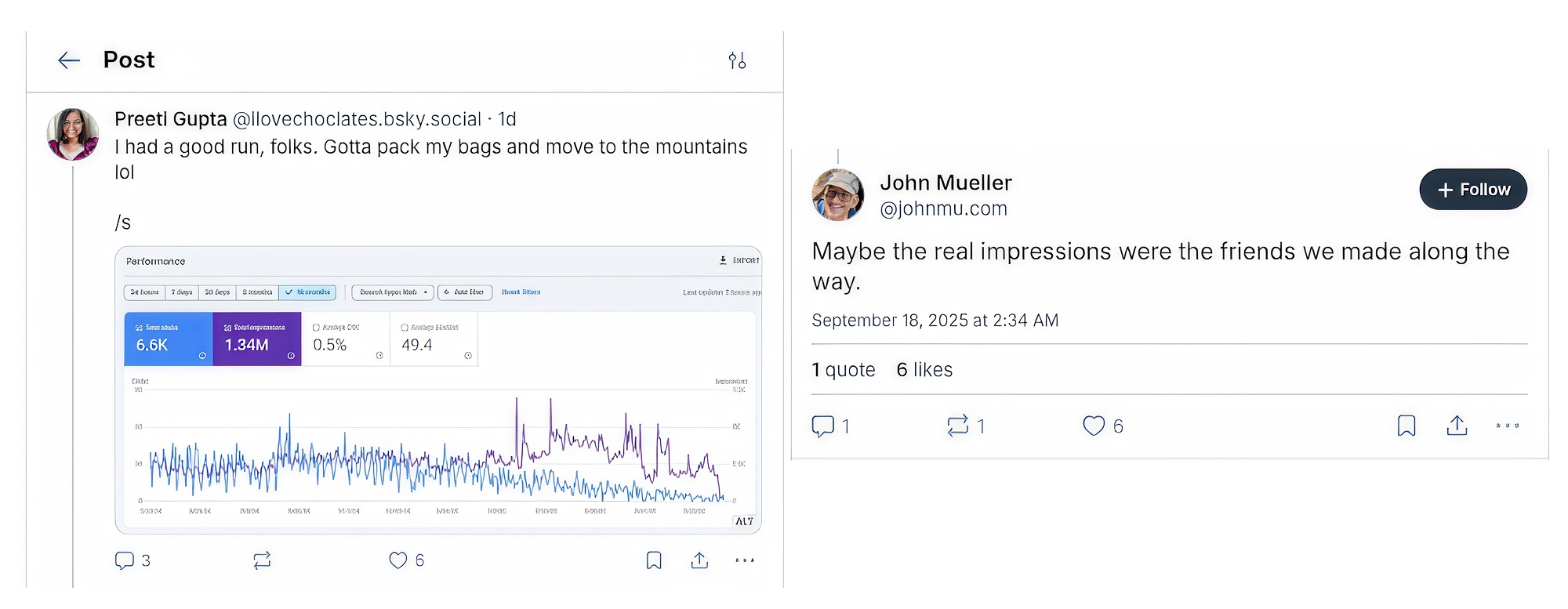The Answer Era: Google’s 2025 Core Update & What it Means for Search

The latest updates to Google Search may be some of the biggest that the search engine has ever seen.
When people refer to Google Search, they often use the singular phrase “the algorithm”. But Google uses multiple algorithms to power its search experience. The latest core update focuses on two of them.
Google’s July 2025 Core Update: What’s New?
MUVERA: Faster, more reliable search results
Expect your Google search to be faster and more relevant to the context of your question.
Aside from the new AI Overviews that appear at the top of your Google search results, the most noticeable change to the platform may be that your results will be better tuned to what you actually mean, not just what keywords you use.
The Multi-Vectoral Retrieval Algorithm (MUVERA) searches for multiple relationships between words and phrases (multi-vectoral retrieval). Then MUVERA takes all those multi-vector queries, re-ranks them, and presents them as a single vector.
Think of MUVERA like a map for each city neighborhood that makes one for the whole metro.
Now that’s a very simplistic explanation; there are other incredibly smart folks who can explain MUVERA’s technical achievements better than me. And while we don’t know for certain whether MUVERA was part of this update, Google recently published significant research showing how it reduced search latency by 90% and increased recall by 10%, compared to previous algorithms. It also presents 5–20 times fewer pages to match the search’s specificity.
So it’s possible we could expect more tailored, high-quality results moving forward. That means higher competition for more specific searches. But that’s not all.
Google’s Graph Foundation Model: AI-powered spam detection
If MUVERA is Google’s search “matchmaker”, then its new GFM is that other friend of yours who tells the creepy guy across the bar to take a hike.
Except this friend is an AI-powered algorithm who hates spammy ads.
Much like LLMs, GFMs are able to complete tasks on data they weren’t trained on. Google has recently trained its GFM to spot spammy ad content within its Google Ads platform. The results are very encouraging: 3–40 times more precision in detecting spam content than previous iterations.
While no one has publicly confirmed whether this GFM is currently in use on Search, recent events do suggest how serious Google is right now about spam.
The August 2025 Spam Update
An August 2025 spam update, which Google is still deploying at the time of this writing, has coincided with major shakeups in organic traffic across the web. Many web traffic analysts are noticing a massive decrease in impressions within the Google Search Console monitoring platform. However, these sites are also seeing a steady rise in search position. This wouldn’t usually make sense, but a cryptic Bluesky post from Google’s John Mueller may hint at something bigger going on here:

I should point out that Google has made a concerted effort in the past two years to crack down on bot traffic, including those who scrape its results to power tools like Ahrefs or SEMrush. It’s actually in their Spam Policy.
Google just confirmed this update includes a removal of the ability to view 100 search results at a time. This effectively puts a stranglehold on many third-party SEO tools that rely on this function to scrape results and track positions.
How Does Google’s July Core Update Affect Search?
As more users take their searches to LLMs, Google’s share of worldwide search volume has dropped to 89%. That sounds perfectly fine, but they used to be at 93% two years ago.
ChatGPT is looming. Google’s relevance is being challenged. But the search giant didn’t hear anyone ring any bells just yet.
1. Google is Transforming from a Search Engine into an Answer Engine
We’re experiencing a dramatic shift in our search habits. With more people flocking to LLMs to gather information for complex questions, users have made it clear they expect more than pages and rankings. They want their conclusions to be provided, too.
AI overviews have proven that we’re much more comfortable with zero-click searches, or searches that never leave the search engine. A Pew Research Center report determined that 16% of Google searches were zero-click without AI overviews. That number jumped to 26% when the search included an AI overview.
Zero-click searches aren’t a new trend, but they’re increasingly common. These updates are keeping Google fresh and relevant against LLMs.
2. Conversational Search is the New Norm
The searches aren’t just “mobile app development Baltimore” or “AI consulting” anymore. They’re more like, “How can I build a food delivery app using a React framework?”
That means that pages targeted toward specific, popular questions or tasks will be the ultimate winners of this update. Context is an even more important search factor now. Adding some popular keywords and fluffer copy won’t cut it anymore.
3. The Days of “Gaming” Google’s Algorithms May Be Ending
Google’s latest updates could actually be great news for the search experience, but maybe not the professionals who craft it. Too often, people treat SEO as a “gotcha” back-and-forth between Google and content creators.
Sometimes that’s led to unethical, “blackhat” techniques like keyword stuffing. But that might be on its way out now. Spamming keywords has worked really well for some websites, but MUVERA’s ability to separate contexts quickly is another sign that search is evolving for the betterment of the user.
That said, it also presents significant challenges for SEO professionals and SEO software companies. The company built its search model on third-party content, then used it to power the same AI overviews that allegedly leech contributors’ traffic. Google is making it quite clear that its tools should be the de facto standard in this industry without offering much in return. You want to game Google? Fine, but you gotta play with their toys.
How Websites Should Respond to Google’s Core Update
SEO professionals understand that these latest updates mean ranking and gaining impressions may be more competitive than ever. Here’s what we’re recommending to stay ahead.
Solve for Real, Human Questions
Everyone creating content needs to take a good, long look at their stuff and ask themselves, “Am I creating this just to get ranked? Or is this useful to our audience?”
The answer to better rankings is no longer just to match keyword strings and get links (although that definitely doesn’t hurt).
It’s to have the best page for that particular user’s task.
That now goes far beyond keywords. It’s a testament to positive user experience being the ultimate search engine optimization factor.
Rethink Your Metrics
For many websites, a decrease in organic search traffic acquisition is inevitable. While SEO certainly isn’t irrelevant, its position in the realm of earned media may need to be reassessed. That means revisiting our key performance indicators.
If zero-click searches are to be the new norm, then perhaps online sentiment and brand mentions become much more important. Clicks are a nice KPI, but that may come secondary to impressions and position.
The answers will vary depending on your organization and goals, but it’s clear to me that SEO could be in the middle of a foundational sea change right now.
The Era of Search is Over. The Era of Answers is Here.
SEO has always been a visibility game, but now more than ever with Google’s latest core update. Critics will say that the rise in zero-click searches means SEO is dead.
I disagree, and not just because I do a lot of it. It’s because the internet is a billion conversations happening all the time. Either you’re a part of them, or you’re not.
Not only can you not rank if you don’t try, but competitors will, and they’ll be the ones having those conversations.
Searching for your answers to SEO? We have them.